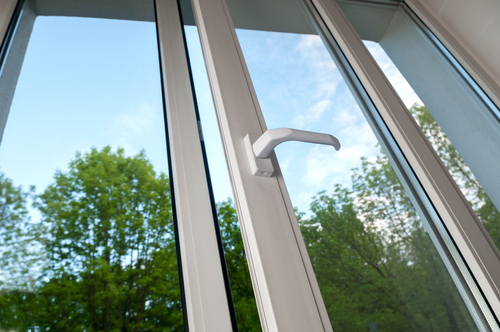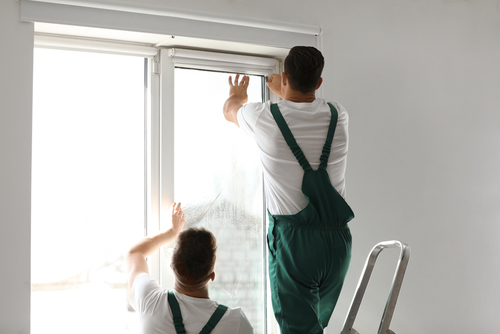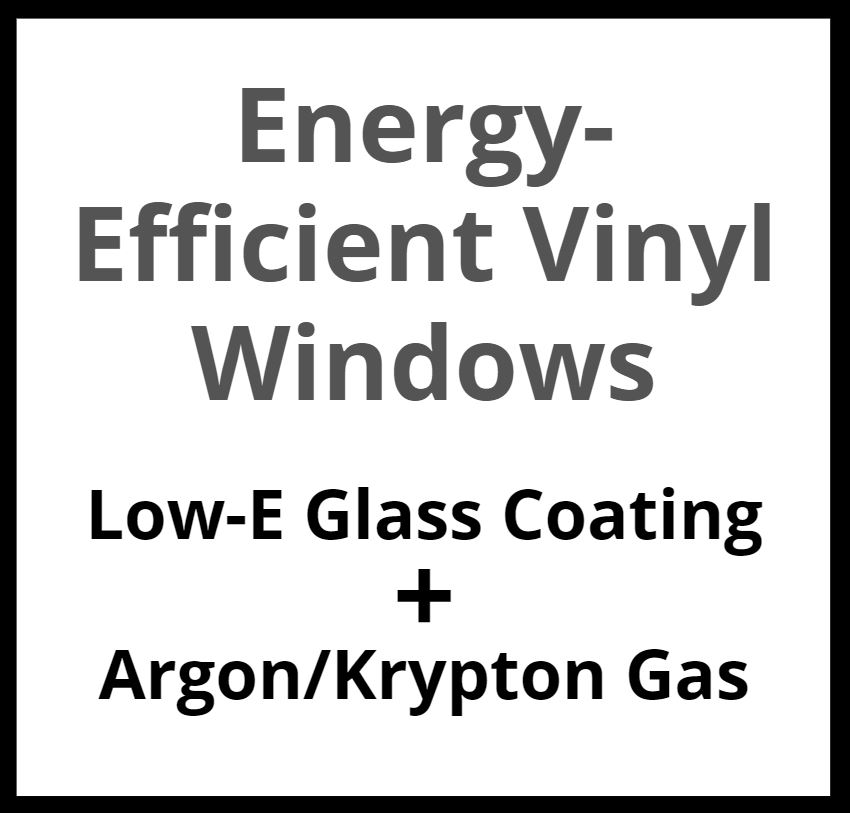What You Need to Know About Vinyl Windows
With a notable energy efficiency performance, lasting durability, and economical prices, more and more homeowners are choosing vinyl windows.
Custom vinyl home windows are mainly designed to minimize heat transfer. This feature maintains a pleasant, comfortable temperature inside your home, all-year-round, no matter what the season is. Because of this, your home’s heating and cooling system wouldn’t have to work extra hard.
In turn, you could be looking at a tremendous amount of energy savings.
Early Versions of Vinyl Windows
The shortage of materials such as aluminum, steel, and wood in the 1950s led to vinyl usage for residential windows throughout the country.
Wooden windows were the norm decades ago. They still are widely used to this day. However, the rise of vinyl has dethroned wood as the king window material.

As with any other piece device, the previous models of this vinyl replacement windows did have issues before fully developed for optimum performance.
The use of vinyl for home windows is a relatively recent innovation.
This window material has only been used for less than a century – and in the last 50 years, vinyl has been known to be a more robust and more practical rival to wood, a more traditional and commonly used material.
Vinyl provides a more comprehensive design selection and flexibility, minimal upkeep, and most remarkably, energy-saving capabilities.
Older vinyl home windows particularly had thermal expansion problems. The vinyl sash would react negatively – either through expansion or contraction – and would lead to leaks.
Manufacturing of Vinyl House Windows
Vinyl home windows have come a long way since they first came out in the ‘50s. Many window manufacturers conduct advanced performance testing to ensure that the windows have lasting durability and outstanding weathering features.

Aside from outstanding performance, vinyl is preferred when you want to add a more personalized touch to the windows.
The flexibility when it comes to customization allows for more enhanced aesthetics.
Nowadays, modern vinyl residential windows are dimensionally stable and durable. They can fare well in extreme environments without compromising functionality.
The chief factor for the popularity of this window type is its thermal performance. Naturally, homeowners would want to conserve energy usage, so their bills don’t skyrocket. Thus, it’s typically a must to find devices and appliances with remarkable thermal efficiency.
By the mid-90s, 45 percent of home replacement windows were vinyl. Currently, three out of four home replacement window installations are vinyl residential windows.
Pricing
Vinyl is a favorite because of its affordability. These home windows come in a wide array of price ranges. This pricing flexibility caters to a broader range of customers with varying replacement window installation budget.
Aside from being an economical replacement window option, homeowners appreciate the fact that they can continue to save for as long as they have the vinyl home windows. That’s because of the thermal performance of vinyl, which is a significant benefit to homeowners.
Durability
Thanks to today’s technology, vinyl replacement windows are built to last for decades – and with little to no upkeep or maintenance. You can’t say the same about wood – that’s for sure.
After the installation, you can forget about them. There’s certainly no need to stain, repaint, refinish this type of window. On top of that, these windows are scratch and moisture resistant.
Effortless Upkeep
Aside from the thermal efficiency, one of the smartest features of vinyl home windows is they tilt in. This setup means you can easily wipe the outside glass without going out.
Older vinyl home windows were only available in a select number of colors. They would also gradually wash out, fade, crack, and split in extreme conditions.
To address this issue, many vinyl home windows manufacturers have continued to improve manufacturing technology. They also perform continuous testing to make sure the windows come out with first-rate quality.
On top of that, water, air, and thermal testing are conducted to provide additional protection layers. This step also ensures that the windows are energy efficient.
Complete Customization
Vinyl home windows come in many different styles, shapes, sizes, and colors. They are an excellent choice for homeowners who want fully customized home windows – especially if there’s a specific home décor you are aiming for.
No matter what architectural style you have going on in your home – along with the décor and colors –there are vinyl home window replacements that can complement them.

If you are in the market for new or replacement windows or if you’re current windows are broken and outdated, needing an overdue upgrade, you can’t go wrong with vinyl home windows.
This material is an extremely cost-effective option if you want to upgrade your old windows at home.
However, the product is only as good as the installer who designs and sets it up. Thus, you must find professional and experienced window technicians for designing and installing your new custom windows.
Energy Efficiency of Vinyl Windows
The technology behind the manufacturing of vinyl home windows allows for its outstanding durability and performance. It also has an increased level of protection against weather and other outside elements.

Because of these features, vinyl replacement windows can make your home comfortable and cozy throughout the year.
You are taking the stress out of your heating and cooling system to work harder to maintain a comfortable indoor temperature.
Low-E, which means low emissivity or low thermal emissivity, glass coating is the technology behind protecting homes and other structures from the sun’s UV rays. On top of this, noble gasses such as argon and krypton are added between panes to increase the home windows’ insulation features.
The combination of the Low-E glass coating and gas filling ensures that you have an energy-efficient home through modern windows.
Are Vinyl Home Windows Durable?
The short answer is yes. These windows are made of non-corrosive materials and compounds to structure the frames.
A common problem with other window types is their contraction and expansion because of temperature changes. Over time, this can cause air and heat to leak out of your home or get in it. You wouldn’t have that problem with vinyl house windows.
Good-quality vinyl windows are constructed with wholly welded edges and corners to prevent any warping.
Home Windows: Vinyl Vs. Fiberglass
When ordering new windows for your home, you are presented with several different options. While having choices is always good, it could get overwhelming.
With home windows, the common dilemma is choosing between fiberglass or vinyl. They are both famous materials. However, there are notable differences between the two.
The main advantage of vinyl is they are one of the most cost-effective options in the market today. However, this affordability doesn’t mean quality is compromised. And as we’ve mentioned plenty of times above, vinyl residential windows are incredibly energy efficient.
On the other hand, fiberglass windows are a window frame component famous for their excellent performance and durability. However, they can also get costly.
Vinyl, even with all its great features, doesn’t really fare well with time. They can still last for years and years. However, it ages over time – and the wear and tear will eventually show.
Fiberglass can also arguably mimic the visuals of wood better than vinyl. With that said, vinyl comes in a wide array of style and design options and custom paint colors, so homeowners are free to customize it fully.
If you have the funds for it, fiberglass is not going to be the wrong choice. However, if you are working with some budget limitations, you can’t go wrong with choosing home vinyl windows.